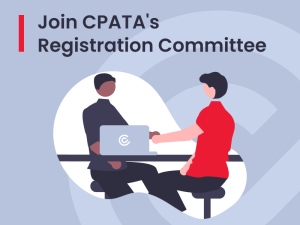CPATA has received a number of expressions of concern about emails recently received by clients of licensees. These communications bear all the hallmarks of what is known as a ‘phishing scam’, the fraudulent practice of sending emails or communications purporting to be from a trusted source, vendor or reputable company to induce people to reveal personal information, bank account or other account information, or to send money to the fraudster. Licensees and members of the public should be on high alert and take steps to protect themselves against phishing attempts.
What to Look Out For?
According to the Canadian Intellectual Property Office, scam notices often request urgent payment for expiring patent or trademark protection, incorporating information from public records to sound legitimate.
In the most recent examples provided to us by diligent agents hoping to protect both their clients and the public at large, a company holding itself out as able to protect trademarks from challenge, led by an individual who refers to themselves as an Intellectual Property Attorney with a ‘team of experts’, raises fears and creates a sense of urgency by suggesting that another party has applied for trademark registration for the recipient’s business name, ‘despite your long-standing use of it.’ It states that unless the trademark is federally registered “your business name is vulnerable to unlawful claims”, and this “demands immediate action to safeguard your rights and protect the integrity of your brand”. Naturally, the sender offers to help you by taking ‘swift action’, at a ‘relatively small cost’. When the recipient fails to answer the first email, more emails follow with increasing urgency and escalating senses of risk. Subsequent emails may say “FINAL ATTEMPT” or the like.
The Better Business Bureau posted an article on May 1, 2024, “BBB Business Scam Alert: Fake patent and trademark renewal emails are targeting business owners.” This is a helpful article for learning more about these type of scams and how to avoid getting caught up in them.
How Can Agents Protect their Clients?
Agents can reach out to clients, letting them know of recent incidents. As mentioned in the BBB article, clients should:
- be wary of ‘urgent’ e-mails they don’t expect from a source they don’t know, especially those requesting financial information;
- review this information from the Canadian Intellectual Property Office about scam notices;
- look up online the information provided in the email and see if others have experienced problems;
- consider whether the email address of the sender seems legitimate;
- reach out to their agent with questions or concerns about communications they receive instead of responding directly to them;
- never give personal, business or financial information to a stranger.
Contact CPATA
CPATA’s mandate is to protect the public, and we take concerns about unauthorized practice and fraudulent activity seriously. Anyone who believes that someone is misrepresenting themselves as an agent or is acting in nefarious, fraudulent ways for profit should notify CPATA by filling in the form below.






